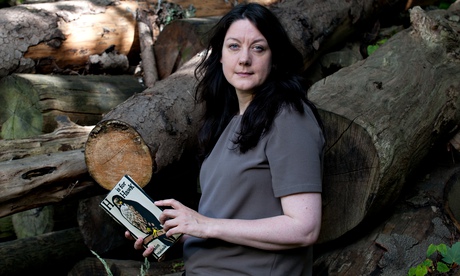
If the bookies are right, the Samuel Johnson prize looks set to go to a memoir for the first time, after 15 years. William Hill and Ladbrokes both have H Is for Hawk by Helen Macdonald (pictured) as short-odds favourite, and they respectively rate Marion Coutts’s The Iceberg: A Memoir as second and third favourite. Has the authorial “I” gained respectability at last?
Dominated by history and biography since it was first awarded in 1999, to be a memoirist snubbed by this prize is to belong to a rather distinguished club, a salon des refuses,, as can be seen from the relevant titles honoured by other, less sniffy, awards over the same period. Lorna Sage’s Bad Blood, Diana Athill’s Somewhere Towards the End and Edmund de Waal’s The Hare with Amber Eyes (the last-named only longlisted for the Samuel Johnson) have won the Costa biography prize. Winners of the Orwell prize for political books have included Andrea Gillies’s Keeper, Christopher Hitchens’s Hitch-22 and Alan Johnson’s This Boy.
Lack of success with the Samuel Johnson judges appears to come down to an academic mindset and requires projects to be a “contribution to knowledge” – so that, with very few exceptions, the winners have required scholarly expeditions to distant times and/or places. From this perspective, one person’s experiences, however painfully or bravely described, can look trivial and narcissistic.
However, a greater flexibility has been evident recently, reflecting a vogue for writing that combines detailed research with a first-person approach, as exemplified by Philip Hoare’s 2009 winner Leviathan and shortlisted titles by Robert Macfarlane (nature, travel, social history), Alex Bellos (mathematics), Aminatta Forna (Africa), Charlotte Higgins (Romano-Britain), Alex Ross (music) and Katherine Boo (India). Macdonald’s H Is for Hawk is part of the same hybrid trend, albeit with the memoir element boosted, and so is another shortlisted title, Alison Light’s Common People. It’s now permissible to appear in your own book, it seems, as long as there’s evidence of serious knowledge-gathering too.
Far from spinning in his grave if a memoir or neo-memoir does win, it seems a fair bet that Samuel Johnson would be gratified his prize has shed its stodgy image at last. Although they are ostensibly impersonal endeavours, the stamp of personality is famously everywhere in his writings. And as the subject and shaper of the Life of Johnson, he authorised James Boswell to pioneer just the kind of blend of personal quest and scholarly enterprise that today’s non-fiction authors increasingly favour.

